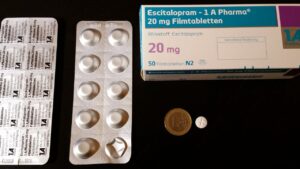Perspectives and Approaches
The opioid crisis is a complex and ongoing public health issue that has affected millions of lives worldwide. As with any major societal problem, different generations view the opioid crisis through their unique lenses, shaped by their experiences, cultural backgrounds, and the prevailing attitudes of their times. In this blog, we will delve into how different generations perceive and approach the opioid crisis, shedding light on the varying perspectives that influence our collective response to this urgent challenge.
Baby Boomers (born 1946-1964)
Baby Boomers, having witnessed significant historical events and social movements, often view the opioid crisis as a tragic outcome of systemic failures and societal neglect. Some may recall the earlier wave of heroin addiction in the 1960s and 1970s, which contributes to their understanding of the current opioid epidemic. As a generation that values personal responsibility, they may advocate for increased addiction treatment facilities and social programs to address the root causes of addiction. Baby Boomers’ experiences may also lead them to emphasize the importance of reducing the stigma around addiction and promoting empathy and compassion towards those affected.
Generation X (born 1965-1980)
Generation X witnessed the initial rise of prescription opioids in the 1990s and early 2000s. They may view the opioid crisis as a result of aggressive marketing by pharmaceutical companies, leading to the over-prescription of pain medications. Generation X individuals tend to value pragmatism and self-reliance, and their response to the crisis may involve demanding stricter regulations on pharmaceutical companies and advocating for alternative pain management methods. Additionally, they may emphasize the importance of education and prevention programs to raise awareness about the risks of opioid misuse.
Millennials (born 1981-1996)
As digital natives, Millennials often rely on technology and social media to engage with societal issues, including the opioid crisis. Many Millennials may view the opioid crisis as a multi-faceted problem, influenced by factors such as mental health, economic challenges, and lack of access to affordable healthcare. They may advocate for comprehensive and inclusive approaches that address the social determinants of addiction. Millennials’ emphasis on social justice and inclusivity may also lead them to call for equitable access to addiction treatment and support services for all affected individuals.
Generation Z (born 1997-2012)
Generation Z is growing up in a world where the opioid crisis is increasingly recognized and discussed. With access to information at their fingertips, they are more aware of the dangers of opioid addiction and may be more cautious about the use of prescription medications. Generation Z tends to prioritize mental health and well-being, and their response to the crisis may involve promoting open conversations about addiction, mental health, and seeking help without stigma. They may also be more receptive to innovative approaches to addiction treatment and prevention, including digital health solutions and telemedicine.
The opioid crisis is a complex and evolving issue that impacts individuals across generations in different ways. Each generation brings unique perspectives, experiences, and approaches to addressing this urgent public health challenge. By understanding these diverse viewpoints, we can foster meaningful dialogue and collaborate on comprehensive solutions that bridge generational gaps and unite us in the fight against opioid addiction. Collective efforts, based on empathy, innovation, and collaboration, hold the potential to create a brighter future where addiction is treated with compassion and support, helping individuals and communities heal and thrive.











